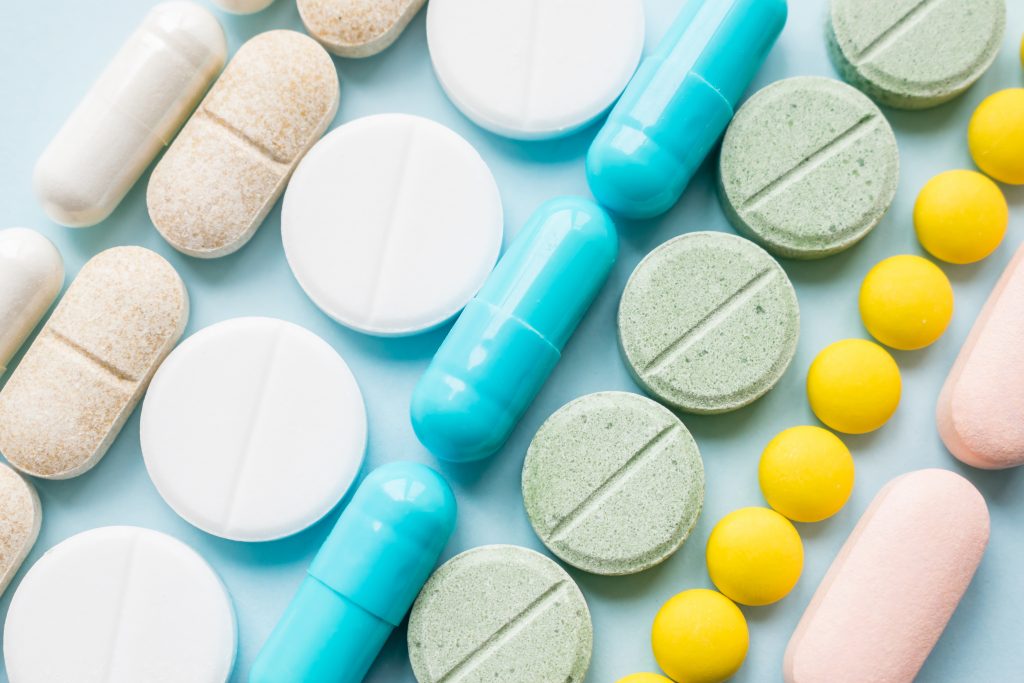Let us be honest with each other. The process of healing from opioid addiction and staying sober is hard work. Sometimes, it feels uncomfortable and unfamiliar for the victim. It can even be terrifying. One has to be fully prepared mentally and physically to cope with everything that may come their way.
Unfortunately, some people fall into the pit of trading opioid addiction for another addiction. Most of them believe that since they have started recovering from opioid addiction, getting involved in what they think is a “lesser evil” is okay.
That isn’t the case because trading one addiction for another is quite dangerous and can result in a more severe wave of behavioral and clinical problems.
Being trapped in an endless cycle of addiction tends to affect women more than men, but it is pretty dangerous for anyone involved, regardless of gender. In fact, it never feels good to be caught up in a cycle of addiction no matter what you are addicted to.
Let us talk about the cycle of addiction and what you can do to break it.
How Does the Cycle of Addiction Start?
Before we dive deep into discussing some of the things you can do to break the cycle of addiction, it is good to know how it starts.
The truth is that life can get tough at certain times, forcing you to deal with professional, financial, relationship, family, or emotional issues. These burdens can lead to anxiety, stress, anger, resentment, and fear.
In most cases, these difficult circumstances prompt feelings that many people don’t want to feel or handle. When one can no longer absorb the stress and anxiety, they will most likely turn to drug substances such as opioids to numb the feelings.
Taking drug substances can feel like a great solution in the short term, but it pushes one to a more significant problem that may last for many years- addiction. Therefore, the cycle of addiction mostly begins when someone wants to alleviate their suffering and feel better.

In their quest to avoid pain, drug addict victims usually turn to their favorite drugs for a solution that provides quick relief not knowing that it will be the beginning of their cycle of addiction.
Developing a habit of turning to drug substances to deal with your life issues eventually impacts your brain and its reward system. The addictive substance you are taking eventually alters your brain’s grey matter and starts to dictate which path your brain will take the next time you use the substance.
This is usually referred to as neural plasticity. When this change happens, your brain’s powerful role of controlling your behavior is subsidized, pushing you into the toxic cycle.
What Is Addiction Replacement?
Addiction replacement occurs when an individual who is recovering or has just recovered from drug addiction finds another substance or social activity to shift their attention to in an unhealthy way.
For instance, someone who is recovering from opioid addiction may think that gambling or drinking alcohol is okay because they haven’t had any problems with it before. Unfortunately, the seemingly harmless activity can quickly become an addiction replacement when done compulsively as a coping mechanism.
Common Addiction Replacement Options
Although replacement addictions can be almost anything, some common examples of recovering drug addicts trading one addiction for another may include a new addiction to:
- Gambling.
- Sex and other risky behaviors.
- Shopping.
- Alcoholism.
- Smoking.
- Exercising.
- Binge eating.
- Benzodiazepines.
- Overworking.
- Religion.
The truth is that once you start engaging in any activity or behavior that begins to dominate your time, attention, thoughts, and even finances, you are in a danger zone. The unfortunate thing is that you will most likely feel powerless over controlling your replacement addiction, and things can only get worse if you don’t seek professional help.
What Are the Warning Signs of Opioid Addiction Replacement?
In some cases, you may fail to notice that you are slowly shifting your addiction to something else because you will enjoy the benefits that come with the activity. Your newfound behavioral change will play a significant role in distracting you from your first addiction, reducing stress, and relieving your pain.
But, you should be worried if you start to notice any of the following signs because it could be an indication that you are starting to trade your first addiction for another:
- Neglecting self-care.
- Having relationship troubles.
- Constantly talking or thinking about your newfound activity.
- Losing sleep or money just to participate in the activity.
- Experiencing stress or anxiety if you can’t perform the new activity.
How Can You Avoid Trading Opioid Addiction for Another?
So, what can you do to ensure that you don’t trade your addiction for another? The following tips should help you.
1. Find a Hobby You Enjoy
If you feel like you have a lot of time on your hands, find a hobby that can give your life meaning, direction, and purpose. Engage in healthy activities that boost your mood, helps you to rebuild your confidence, and promote self-esteem.
Fortunately, there is an unlimited number of hobbies that you can pursue instead of turning to another addiction. You can start playing your favorite game with your friends, paint, woodwork, or join a hiking group and explore the local parks.
2. Meditate
Recovery from substance abuse is a mental, physical, and spiritual endeavor. Even if you are an atheist, you can greatly benefit from mediation since it provides you with spiritual nourishment and makes you a better person.
It teaches you to be more mindful of your body, mind, and soul. Thirty minutes of daily meditation can relieve stress, anxiety, depression and provide you with access to higher consciousness, allowing you to feel better.
3. Volunteer Your Time
Volunteering your time is another excellent way to avoid substituting opioid addiction for another. The good thing is that many organizations out there would greatly benefit from the donation of your free time.
Volunteering also means that you are spending your energy making a positive difference in your local community. This will keep you focused on helping people who need you most and avoid the trap of addiction replacement.
Not sure how to volunteer your time? Contact the NGOs and other charity organizations in your local area and see if you can help them with anything whenever you are free.
4. Spend Time with Family and Friends
The truth is that human beings are social animals by nature. So, we all need to spend time with people we love and care about to feel good.
As long as your friends and family members don’t push you to use drug substances and fully support your recovery journey, spending quality time with them is good for you.

In fact, being with people you love and care about will only help your brain to release more “fee-good” hormones granting you more happiness and satisfaction.
If you are already feeling emotionally fulfilled through the love of your friends and family members, there will be no need to trade one addiction for another.
5. Eat a Healthy and Well Balanced Diet
You must have heard the saying “you are what you eat.” It is true because your diet affects how you feel, sleep, and operate throughout the day.
If you consume a lot of junk food, you will most likely feel sluggish and uncomfortable. However, if you consume a healthy and well-balanced diet every day, you will feel energized and ready to take on the world.
When your body is fuelled by clean energy from a healthy diet, you won’t even feel the urge of turning to another addiction.
6. Practice Self-Care
One of the greatest ways to re-stimulate your body and mind is by taking good care of yourself. You have already been through a lot of things with your opioid addiction, and you need to start turning things around.
So, if you are feeling bored, treat yourself to an at-home self-care day. You fully deserve it. Furthermore, practicing self-care will boost your strength and confidence, which can help you avoid trading your addiction with another.
Final Thought
If you fear replacing your opioid addiction with another, you need to seek professional help urgently. It is essential to face the early warning signs head-on before the situation spins out of control.
At CCIWA, we strive to create personalized treatment programs for persons struggling with opioid misuse disorder, which includes a combination of medicated assisted treatment, case management, and behavioral therapy.
Our doctors are highly experienced and will do everything possible to help you overcome your addiction. Get in touch with us today so you can start your journey to recovery and sobriety.



